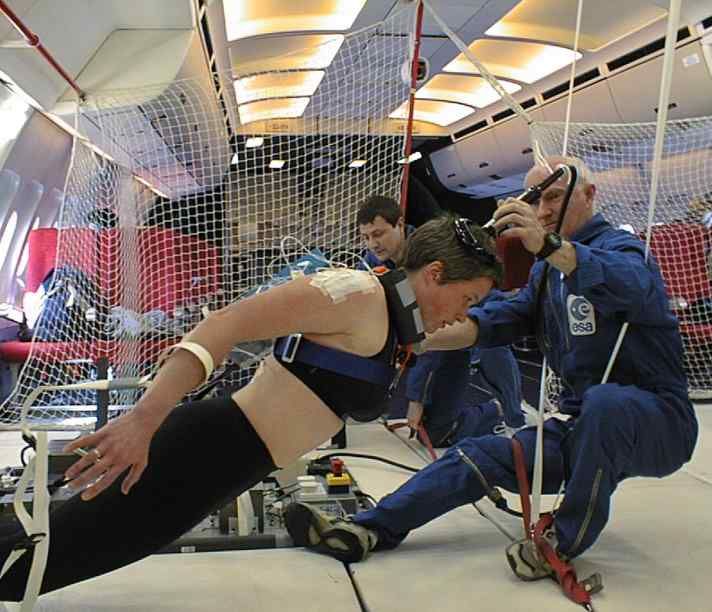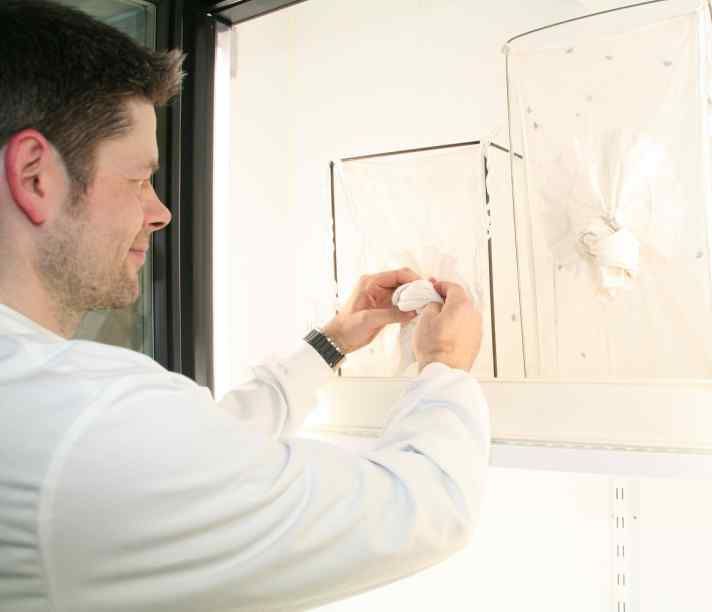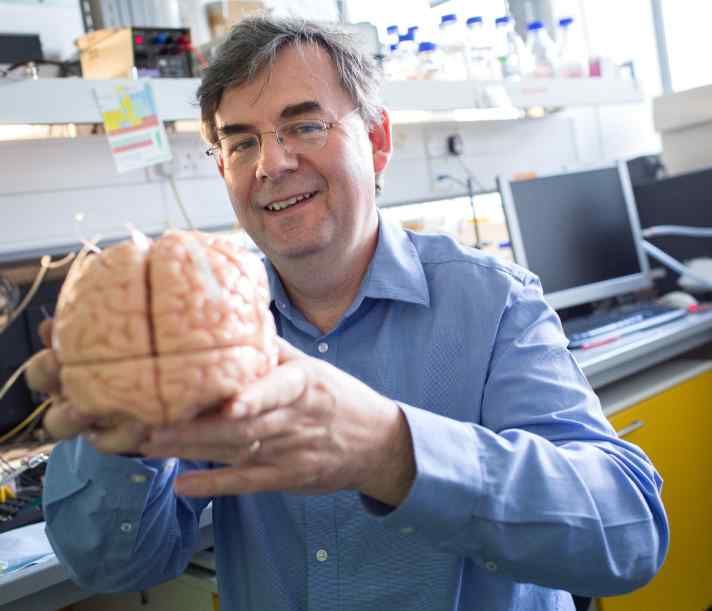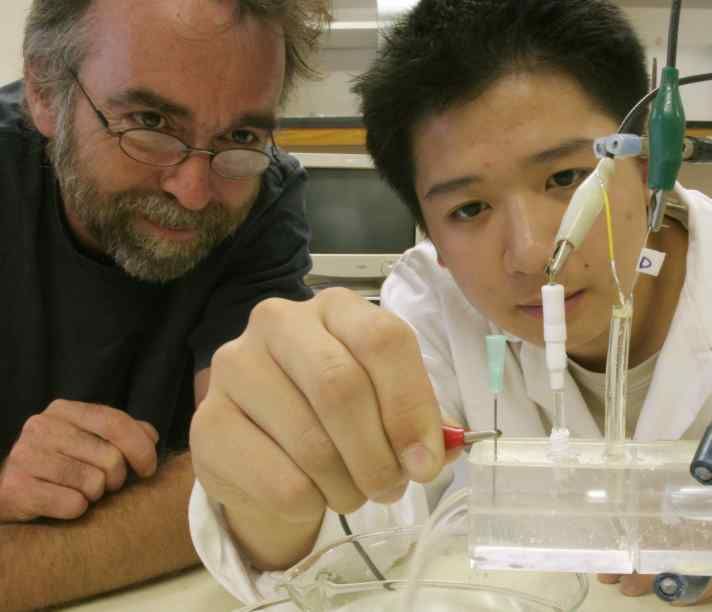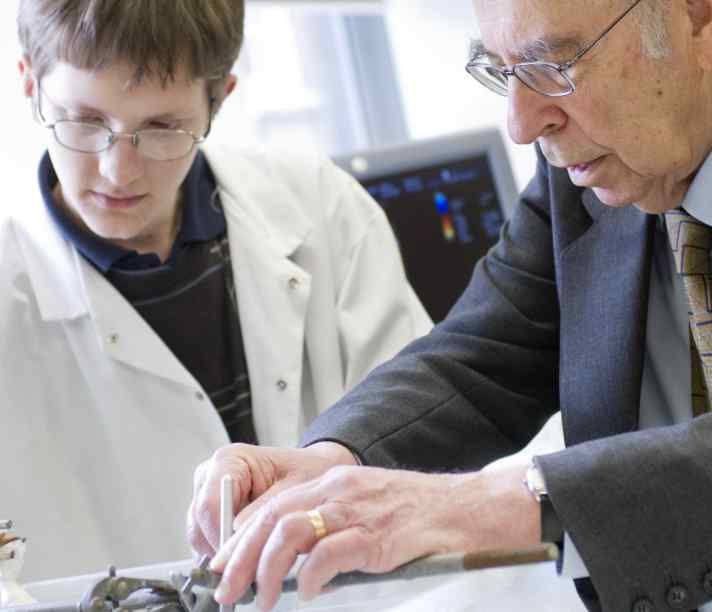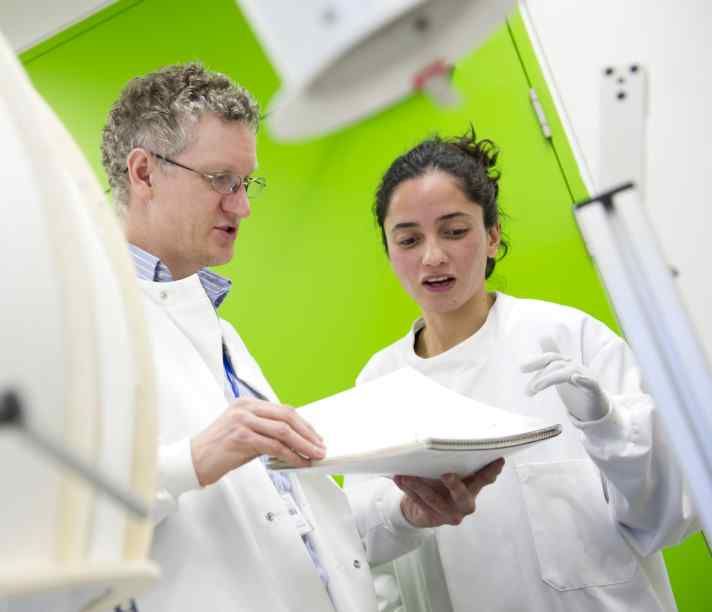What is bioengineering?
Bioengineering at Imperial
Bioengineering is at the interface of engineering and medicine.
Our researchers are groundbreaking, detailed, interdisciplinary, leading, guiding, and fun.
To view some examples, simply hover over the images here or visit our research webpages.
Bioengineering is...
Definition of Bioengineering
Biomedical engineering is a discipline that advances knowledge in engineering, biology and medicine, and improves human health through cross-disciplinary activities that integrate the engineering sciences with the biomedical sciences and clinical practice. It includes:
1. The acquisition of new knowledge and understanding of living systems through the innovative and substantive application of experimental and analytical techniques based on the engineering sciences.
2. The development of new devices, algorithms, processes and systems that advance biology and medicine and improve medical practice and health care delivery.
The term "biomedical engineering research" includes not only the relevant applications of engineering to medicine but also to the basic life sciences.
Development of Bioengineering
Over the last few years there has been a major paradigm shift in both Europe and the United States away from traditional schemes of health care towards health care systems which are much more dependent on technology. This is true in terms of diagnosis (eg body scanners); treatment (radiation therapy and minimal access surgery); and health care system integration (via information technology).
In parallel with these changes, there has been a progressive increase in the proportion of the national Gross Domestic Product spent in the medical sector. For example, in the United Kingdom it is currently between 6 and 7%, in Germany about 9%, and in the United States about 14%. This has resulted partly from demographic changes and additionally from increasing public demand for better health care.
As medical practice becomes more technologically based, a progressive shift is occurring in industry to meet the demand. Developments in science and engineering are increasingly being directed away from traditional technologies towards those required for health care in its widest sense. Although in many countries there is a problem with escalating costs in the medical sector, technology can contribute to economies because of falling costs of electronic/physics based components relative to those for personnel, and because of technologically based screening programmes.



